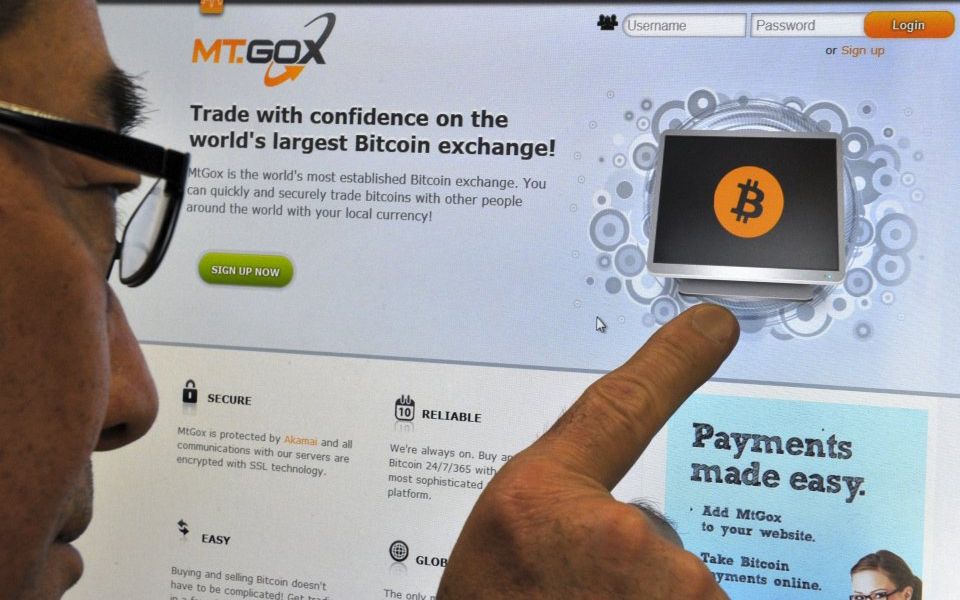The Business Development Mix: Do You Have the Right Stuff?
Aligning your sales process with your target markets
Ever since the release of the Society for Marketing Professional Services / SMPS Foundation report, Sell. Do. Win Business. How A/E/C Firms are Using Staff to Win More Work (pdf), I’ve had a number of very interesting conversations with senior sales and marketing executives as well as firm principals. The research — which included almost 1400 surveys and several dozen phone interviews — reinforced some assumptions and provided clarity on others related to architectural practice, engineering practice and construction industry business marketing and business development.
If there is one over-arching theme to be gleaned from the research, it is that A/E/C firms are spending more money on business development (BD) than they have in the past — and they intend to increase spending in the future. This conclusion is not based upon any concrete expense forecasts (e.g., percent of net revenue spent on BD), but rather the significant growth of both seller-doer and dedicated business developer positions at architecture, engineering, construction, and related firms.
Compared with ten years ago, architectural firms have increased the number of business developers they employ by 20%, engineers by 34%, and construction firms by 45%. A decade ago we were enjoying the pre-recession boom in the A/E/C industry, so the growth in dedicated BD professionals is significant.

Business Development Staffing Trends — Next 10 Years
For the number of seller-doers compared with ten years ago, the statistics are equally impressive. Thirty-three percent of architects have increased the number of seller-doers on staff, while 43% have increased the amount of time that their seller-doers spend doing business development. For engineers, the numbers are greater: 45% of firms have added seller-doers while 45% have increased the percent of time that seller-doers focus on the sales portion of the equation. And for contractors, 41% have added seller-doers while 49% report that their seller-doers spend more time on business development than they did a decade ago.
To firm executives, this means one thing: more overhead. So what gives? Why are firms willing to increase their labor expenses for business development? There are numerous factors driving this trend, but the reality is that we are in a highly-competitive marketplace. Client loyalties have changed: whereas a decade ago there was so much construction happening that a lot of firms could “sit back and wait for the phone to ring” (it’s never really that easy, is it?), that isn’t the case anymore. We’re in a new era of purchasing, with the dreaded “three-bid mentality” destroying long-term relationships and potentially negatively impacting the owners/clients — when the A/E/C firm that knows their culture, facilities, and/or structures isn’t the low bid and newbies come in, this could be a good thing. Or a very bad one!
Third-party facilities managers are increasingly common, as are prequalification/screening firms. So a client you’ve worked with for twenty years may suddenly outsource A/E/C hiring decisions to a firm that doesn’t know you, or require you to go through a screening process (often online) to see if you meet their “new” criteria. Contract language is changing as well, with the dreaded “duty to defend” clause appearing in an alarming number of contracts, forcing firms to walk away from existing clients because the contract terms have become unacceptable — or even uninsurable.
Beyond that, Baby Boomer clients are retiring in droves, taking with them the loyalty to certain architecture, engineering, environmental, consulting, or construction firms, and their replacements often have no loyalties, forcing you to “start from scratch” with a long-term client. Furthermore, depending upon your geographic area and the markets you serve, there may very well be a lack of work to go around. Some areas and markets are booming; others not so much.
So because of these many reasons, and others, A/E/C firms need to have more “feet on the street” when it comes to business development. They need to search wider and deeper to find new clients – or even gain repeat commissions with past or current clients. But this isn’t permanent, is it? Certainly, the tide will change. Right? Well, according the SMPS/SMPS Foundation research, firms believe we are in a new norm — one that may become even more extreme over the next decade.
Survey participants were asked about anticipated staffing changes in the coming decade. Fifty-one percent of architectural firms anticipate adding even more seller-doers while 38% expect to hire more business developers. Engineers are projecting significant expansion of these positions as well, with 59% of firms planning to add seller-doers and 52% expecting to add dedicated business developers. The numbers were similar for construction firms, with 52% anticipating adding seller-doers and 53% adding business developers over the coming decade.

That’s huge. And again, that translates to major increases in overhead, above and beyond the increases that firms are seeing today. So where will this money come from? Profits? Cutting expenses in other categories (including non-labor marketing expenses)? The money must come from somewhere, but firms are expecting a simple formula to play out:
More business developers + more seller-doers = more contracts.
Simply put, in order to grow, they have to expand the ranks of people involved with sales. And they hope — expect — that “a rising tide will lift all boats,” so that ultimately they aren’t spending more for business development labor as a percentage of revenue, otherwise it comes directly off the bottom line. But are A/E/C companies approaching business development wisely? Do they have the right stuff, baby?
As much as firms would like to have a one-size-fits-all, out of the box approach to BD staffing, the reality is that every firm needs to develop the formula that works best for them, and their unique circumstances. This begins with a thorough understanding of your target markets. The majority of successful firms are focused on a few primary markets. Yes, there are still generalists, but they increasingly struggle when competing against niche firms, often being unable to pass the “sniff test” when it comes to baseline qualifications.
So take a good, hard look at the markets you pursue. Where do your firm credentials exist? How about staff credentials, which are often of equal or greater importance to firm experience? Are these markets profitable? Just because you do a lot of K-12 education work doesn’t mean you should, particularly if you keep losing money on projects!
When you truly understand your firm’s areas of focus, you next need to match your business development approach to those markets. Alignment is critical here, or you’ll struggle to maximize the value of your BD staff. Some markets make a lot of sense for the seller-doer approach. Clients are highly sophisticated and expect detailed, technical-driven conversations from the very first meeting. Failure to align your salespeople with the clients’ expectations can be the kiss of death: you won’t be invited back for a second meeting. An example of a market like this would be industrial or health care.
Even if the roadmap you are developing seemingly requires all seller-doers,t discount the role of the dedicated business developer. Other markets, however, do not require such technical conversations early on. The gatekeepers, and even decision makers, may not be technical in nature, and a non-technical business developer may offer perfect alignment for the client needs, excelling at the front-end “getting to know you” conversations. Local governments, for instance, often fall into this bucket.
Maybe all of your target markets favor the seller-doer approach, maybe they all favor the dedicated business developer. Most likely, there is a need for both. If you are a small firm, having a dedicated business developer may not be an option; yes, there are some very small firms that have fulltime sellers, but that is not the norm.
Even if the roadmap you are developing seemingly requires all seller-doers, don’t discount the role of the dedicated business developer. Recent SMPS research has found that the role of sales professionals is changing, evolving. They are still actively doing business development, but increasingly they are coaching seller-doers, training them to be effective sellers. They are looking at strategic plans and aligning the sales programs. And they are often the first voice or face that a prospective client encounters, opening the doors for the seller-doers. I often hear it said that business developers are openers — they open the doors at prospective clients, while seller-doers are closers — they are closing deals, landing contracts.
Because both roles are so critical, firms are adding and will continue to add both positions. But only you can determine what makes the most sense for your markets, your services, and your geographic regions. One size only fits one size, so don’t try to force square pegs into round holes — you may lose clients, project opportunities, and talented staff along the way.
And for many firms, losing talented staff is as terrifying a proposition as not landing new project commissions. Highly effective seller-doers are rare, and when a company loses one, they may lose a lot of business when that person leaves. Likewise, while only 8% of participants in the SMPS/SMPS Foundation survey reported that they can’t find qualified business developers, that number will certainly grow in the coming years. Rainmakers are retiring, and veteran business developers — who came into the A/E/C industry in the early days of the profession (until the late 1970s, it was illegal and considered unethical for professional services firms to sell or market) are retiring. Plus, the demand for BD professionals — and seller-doers — is growing, so it will become more difficult to find these positions in the future.
So what’s the takeaway? Look at your markets and your BD approaches to ensure that you are aligning the sales function with the client/prospect needs. Evaluate your staffing and identify the gaps. And develop a plan to ensure that you are not only effectively responding to the market today, but will be in the coming years.
Chuck Reynolds
Contributor
Alan Zibluk Markethive Founding Member













 Specifically, a recent EU chamber report found that 57% of respondents felt foreign companies were “treated unfavorably compared to their domestic counterparts,” and 56 percent said that doing business getting more difficult. At the same time, China has a lot of so-called “hot” money “that has to go somewhere,” explains Huobi CMO, Du Jin.
Specifically, a recent EU chamber report found that 57% of respondents felt foreign companies were “treated unfavorably compared to their domestic counterparts,” and 56 percent said that doing business getting more difficult. At the same time, China has a lot of so-called “hot” money “that has to go somewhere,” explains Huobi CMO, Du Jin. Bitcoin offers unprecedented mobility and security of funds for the user. Today’s financial system makes moving money and gold around the world slow, costly and inconvenient due to friction and capital controls. Not so with Bitcoin. Whether a few pennies’ or a million dollars’ worth, transfer fees are negligible while your funds are always with you on your device. In fact, it is reportedly becoming a new favorite method for wealthy Chinese to move capital out of the country and as a store of value similar to gold.
Bitcoin offers unprecedented mobility and security of funds for the user. Today’s financial system makes moving money and gold around the world slow, costly and inconvenient due to friction and capital controls. Not so with Bitcoin. Whether a few pennies’ or a million dollars’ worth, transfer fees are negligible while your funds are always with you on your device. In fact, it is reportedly becoming a new favorite method for wealthy Chinese to move capital out of the country and as a store of value similar to gold.